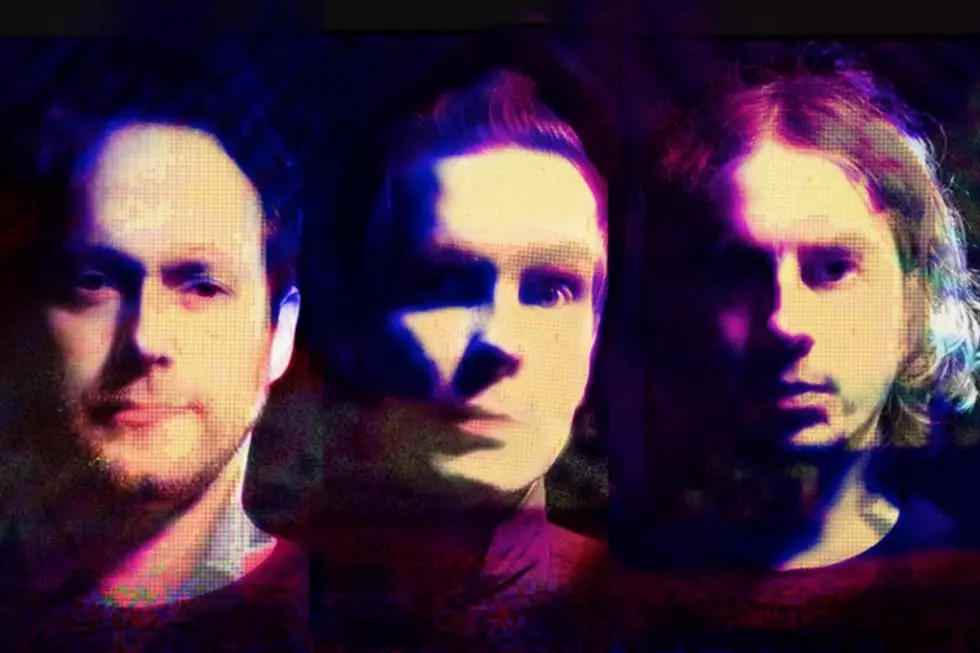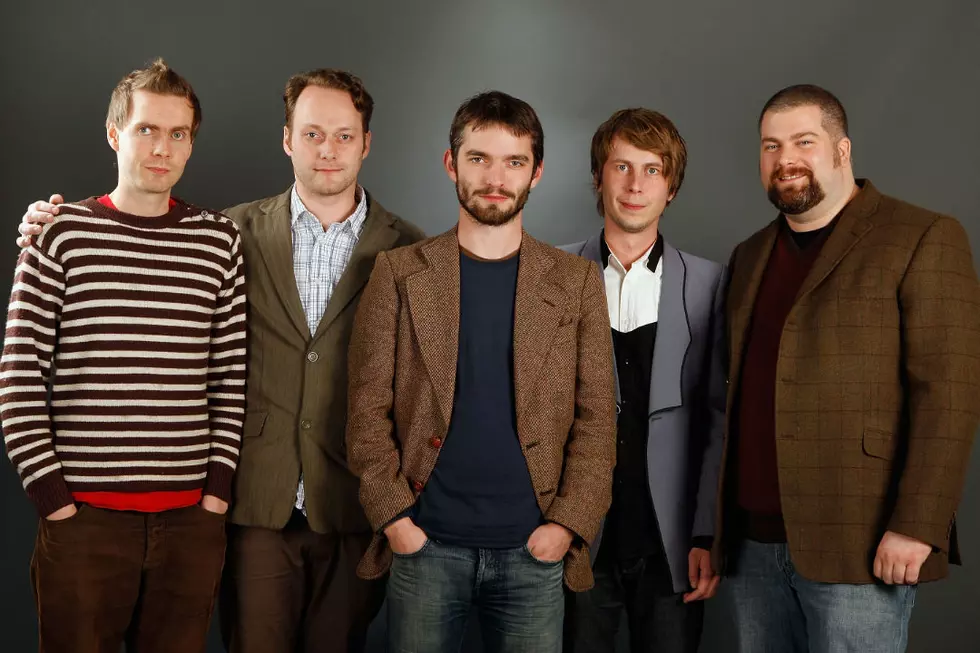
Sigur Ros, ‘Kveikur’ – Album Review
When critics write about Sigur Ros, they often focus on the easy bullet points: the band's Icelandic heritage (along with its lazy accompanying imagery: wafting glaciers, massive boulders, deserted landscapes), singer Jonsi's cosmic falsetto, and their occasional use of gibberish vocalizations (which critics themselves dubbed "Hopelandic"). But Sigur Ros' music has never fit easily into one stylistic box. 'Agaetis Byrjun' was their maximalist art-rock behemoth, '( )' their slow-drifting post-rock headf---, 'Takk...' their twinkling pop breakthrough, 'Með suð í eyrum við spilum endalaust' their sprawling, "try anything once" mess-terpiece. For over a decade, they pulled off a deceptive sleight-of-hand: sounding exactly like Sigur Ros without ever defining a "Sigur Ros sound."
Then came 2012's 'Valtari.' With its ambient, repetitive washes of texture, the music was reliably gorgeous but awkwardly familiar -- a re-casting of '( )' or the moodier second half of 'Takk...' minus the emotional heft. For the first time ever, Sigur Ros sounded like they were writing from within their own image, hitting all the obvious critical adjectives without pushing anywhere new.
The problem, it seems, arose from creative comfort. Since 'Agaetis,' the band's writing process had mostly been static: four shy dudes huddled around their instruments in a room, silently tinkering with sounds. By 'Valtari,' that process finally nestled into an easy formula. But the recent departure of keyboardist Kjartan Sveinsson -- whose orchestral arrangements and classically tinged piano were arguably the band's defining quality -- left the band in survivalist mode, with no choice but to reinvent themselves. 'Kveikur' is the glorious result.
The band members themselves have labeled this album the "anti-Valtari," and from the opening 'Brennisteinn,' it's easy to see why. Georg Holm's bass gurgles through swampy static, Orri Páll Dýrason's cymbal-heavy beats border on black-metal and even the strings and horns -- so often used as New-Age-y padding -- add a menacing uncertainty, sneering violently in the distance like storm clouds.
This is the band's heaviest, bleakest music in well over a decade. After being relegated to the sidelines for the majority of 'Valtari,' Holm and Dýrason are constantly at the forefront, adding a primal edge. The title-track follows 'Brennisteinn''s explosive blueprint, emphasizing the visceral potential of the rhythm section; on the majestic 'Bláþráður,' Jonsi's voice moves from icy coo to demonic, pitch-shifted croak, as Dýrason's tom-toms battle acid-rain strings.
But 'Kveikur' is more than just the band's "heavy album." 'Isjaki' ranks among their catchiest pop songs, and with Dýrason's nimble beats, it's surprisingly funky. On first listen, 'Yfirborð' sounds like the most conventional track here, opening in a blissful trance before switching gears, adding dubstep blips and grainy synths.
With 'Kveikur,' Sigur Ros are at the height of their paradoxical prowess: making music both foreign and familiar, intimate and expansive, human and alien.
More From Diffuser.fm









